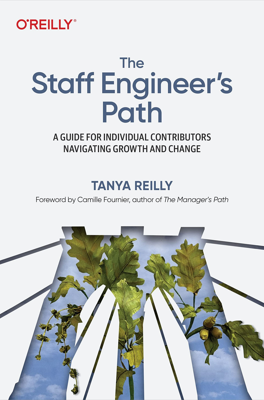What’s Next?
Personal Career Analysis and Future Paths
In exploring the next steps in your career as a staff engineer, it’s crucial to focus on what truly matters to you. Drawing a trail map of your career can guide you through various possible paths and help you determine your ultimate career directions. Just like with your actual work, selecting what aligns with your goals—whether it's financial security, work-life balance, or pursuing specific passions in technology—can shape your future opportunities and job satisfaction.
Prioritizing Important Aspects and Drawing Career Paths
Reflect on what's important to your life outside of work as well, such as family, financial goals, or personal hobbies. This introspection helps in crafting a career trajectory that is not just about climbing the corporate ladder, but also about enriching your personal life and aligning with your broader values.
Reassessing Current Role for Career Alignment
Evaluating your current staff engineer role is vital to understand how it helps you towards your future aspirations. Questions about learning opportunities, skill transferability, workplace stress, and overall job satisfaction can indicate whether your current position aligns well with your career and personal priorities.
Strategies for Career Advancement or Change
Staying in Your Current Role: This could involve enhancing your current skills and reputation within the same organization and not necessarily seeking a promotion or job change.
Seeking Promotion: If aiming to grow within your current company, discuss your aspirations with your manager, understand promotion criteria, and align your contributions to match the expected organizational impact.
Adjusting Work-Life Balance: Sometimes choosing to work less or adjusting job responsibilities can significantly impact personal happiness and goals.
Exploring New Teams or Roles: Internal transfers or exploring new functional areas within the company can revitalize your career by providing new challenges without losing accrued benefits of the current organization such as network and understanding of internal systems.
Expanding Skills or Switching Careers: Whether through building new specialties or even shifting careers entirely, diversifying your skill set can lead to fresh perspectives and undiscovered opportunities.
Management Roles: Transitioning into management can happen on different scales—from leading projects to taking on formal people management. Understand the necessary skills and organizational impact to make this transition effective.
Going Independent or Starting Your Own Business: For those seeking ultimate autonomy, consulting or entrepreneurship provides a platform to apply your skills on your terms but requires readiness for a different set of challenges and lifestyle changes.
Responsibility and Impact in the Tech Industry
As a senior figure in the tech industry, your decisions and actions set precedents. The responsibility to develop reliable, ethical technology is considerable. It’s vital to stay aware of the broader impact of your work, fostering a community and industry that values accountability and thoughtful innovation.
Conclusion on Career Management
In conclusion, managing your career as a staff engineer goes beyond technical competencies to include self-awareness, strategic planning, and an understanding of personal and professional goals. Regular evaluation and alignment of your role and responsibilities with your career objectives are essential to ensure satisfaction and impactful contribution in the tech industry.
